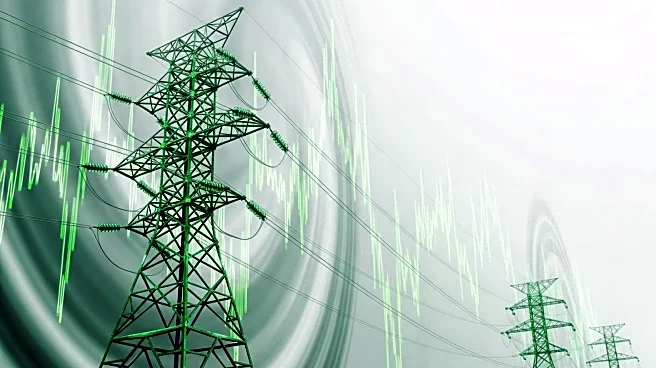What's Happening?
A recent webinar hosted by edie in partnership with Brook Green Supply highlighted strategies for businesses to procure energy sustainably while managing commercial risks. The session emphasized the importance of balancing ambition with risk management in the clean energy transition. Key insights included the need for disciplined risk governance, fit-for-purpose contract choices, and intelligent use of market structure and seasonality. The webinar underscored the significance of Renewable Energy Guarantees of Origin (REGOs) and Power Purchase Agreements (PPAs) as commodities, rather than afterthoughts, in energy procurement strategies.
Why It's Important?
The transition to clean energy is crucial for businesses aiming to meet net-zero targets and align with stakeholder expectations. Failure to act could result in reputational, operational, and financial consequences. The current energy landscape is marked by volatility, with price fluctuations and geopolitical challenges posing risks to businesses. By adopting strategic procurement practices, companies can mitigate these risks, ensuring budget certainty and operational resilience. This approach not only supports sustainability goals but also enhances competitiveness in a market increasingly focused on environmental responsibility.
What's Next?
Businesses are encouraged to develop procurement strategies that incorporate seasonality and market dynamics, allowing them to capitalize on renewable generation and price fluctuations. The integration of REGOs and PPAs into energy contracts is expected to become more prevalent, providing companies with price certainty and proof of renewable sourcing. As the demand for traceable, asset-specific certificates grows, businesses will need to adapt their strategies to manage these commodities effectively. The ongoing evolution of the energy market will require continuous adaptation and collaboration among stakeholders to achieve sustainability objectives.
Beyond the Headlines
The focus on decarbonization and risk management reflects broader industry trends towards sustainability and resilience. As businesses navigate the complexities of the energy market, the role of strategic partnerships and innovative solutions will become increasingly important. The shift towards renewable energy not only addresses environmental concerns but also represents a cultural change in corporate responsibility. By prioritizing sustainability, companies can contribute to global efforts to combat climate change, while also securing their long-term viability in a rapidly changing world.










